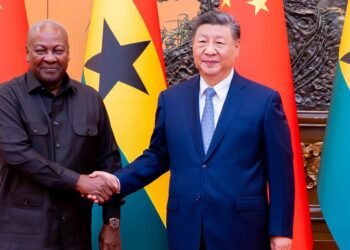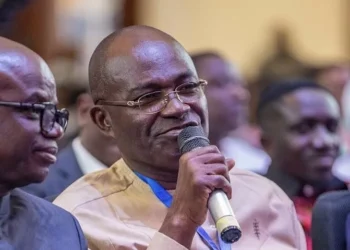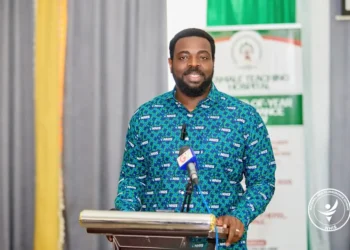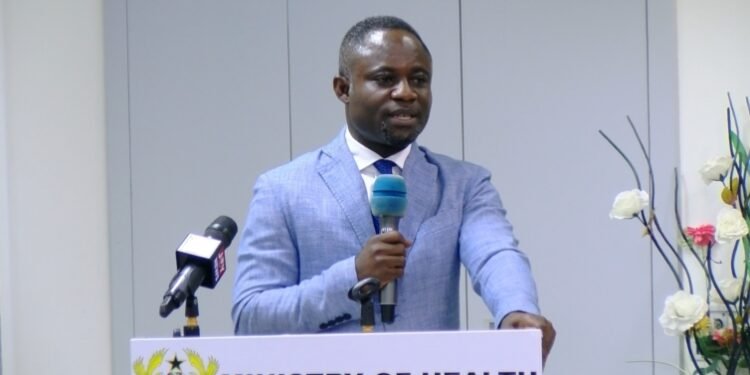The International Institute for Sustainable Development (IISD) and the IMANI Center for Policy and Education have thrown their weight behind the establishment of Ghana’s new Fiscal Council, describing it as a vital institution for ensuring fiscal credibility, transparency, and long-term debt sustainability.
The two institutions, however, emphasized that the council’s effectiveness will depend heavily on operational decisions, staffing, and a clear framework for its independence.
This came to the fore at a high-level policy roundtable organized on August 27, at the Tang Palace Hotel in Accra. The meeting brought together government officials, Members of Parliament, development partners, civil society groups, and researchers to discuss the design and implementation of the council, which was recently approved under the Public Fiscal Management Amendment Act, 2025 (Act 1136).
Fernando Mora of the IISD, who led the presentation, explained that the roundtable was not about revisiting the legislative design of the council but rather about considering how best to implement it in a manner that would be both practical and impactful.
“We are not here to discuss the design of the law, because that discussion is passed. We are looking forward to try to think how we can improve the implementation of the fiscal council to be useful”.
Fernando Mora
According to him, the report presented by IISD and IMANI drew on three key pillars: lessons from international experience, Ghana’s current macroeconomic and fiscal challenges, and extensive consultations with public officials and stakeholders. The objective, Mora noted, was to generate recommendations that are not theoretical but “realistic, grounded, and more important than that, actionable.”

Comparative Analysis
Drawing parallels between Ghana and his native Argentina, Mora explained that both countries share histories of debt crises, unsustainable fiscal policies, and repeated challenges with debt sustainability. Against that backdrop, he described the fiscal council as a necessary independent authority with three core roles.
“The fiscal council can, of course, play the watchdog role of overseeing fiscal rules, but it can also serve as an advisory body not only to government but to parliament, and, importantly, it can act as an independent communicator of fiscal policy directions to both the public and investors.”
Fernando Mora
He stressed that this communication role was especially critical in Ghana’s context, where credibility in fiscal management is often questioned by markets and creditors.
“Debt sustainability depends on anchoring expectations. The fiscal council can play the role of communicating to the investors how the fiscal policy is aligned or not, or the kind of risk that you are facing on debt sustainability.”
Fernando Mora
Global Experience
Turning to global experience, Mora cautioned that the lessons available are largely drawn from high-income countries, with relatively few comparable cases from sub-Saharan Africa.

In the region, he highlighted Uganda, Kenya, and South Africa as examples of fiscal councils operating primarily as parliamentary budget offices. Zambia, Malawi, and Nigeria, he disclosed also have similar institutions, though they are not always classified as fully independent fiscal councils.
From these cases, Mora underscored three dimensions as crucial to effectiveness: independence, governance, and core functions.
“Legal independence is important and Ghana’s law already provides for this but the most important thing is operational independence, and that depends on having an adequate budget, the ability to recruit staff, and the authority to publish public reports.”
Fernando Mora
He emphasized that fiscal councils across the world are often led by boards made up of academics and policy experts, with staffing provided outside the board to ensure robust technical analysis. “Effective reporting depends on having your own staff. The board needs input, and this input depends on having the staff,” he remarked.
Regarding the council’s functions, Mora said international practice shows fiscal councils typically assess government forecasts, evaluate the credibility of budget assumptions, conduct sustainability analysis, and make recommendations. They do not, however, halt or obstruct the budget process.
“You are not stopping the budget process, you’re just an advisory on how good or how bad are the structures of the budget when the government presents it”.
Fernando Mora
He was quick to warn that fiscal rules and councils are not “silver bullets.” Many African countries that have adopted fiscal rules remain at high or moderate risk of debt distress. “Implementing or having in place a fiscal rule doesn’t guarantee that you are going to have credibility. You need to build it,” Mora said.

Ghana’s Fiscal Rules Experience
Ghana, he recalled, has had experience with fiscal rules between 2018 and 2020, which were suspended in the wake of the COVID-19 pandemic. The fiscal council that existed at the time did not survive beyond the suspension.
The new Act, Mora explained, sets out more stringent fiscal rules, including a higher primary surplus target and lower debt-to-GDP thresholds. While these are ambitious, he stressed that they are achievable but will require significant effort.
“You have a 1.5 percent primary surplus target, and that is fine because it shows to creditors that Ghana is serious about debt sustainability. But it’s going to be challenging, because in the last 50 years, you never had a 1.5 percent primary surplus”.
Fernando Mora
Beyond targets, Mora highlighted structural obstacles such as weak data systems, off-budget expenditures, and the vast number of public entities outside central government.
“If you want to see if you are going to reach the fiscal surplus, you need to be aware of the spending before it happens. For that, you will need very good systems,” he warned, citing examples such as the debt of Cocobod as liabilities that could undermine fiscal projections if not properly accounted for.
He further explained that debt sustainability must be assessed beyond fiscal balances, taking into account growth, interest rates, and exchange rate dynamics.
“If your debt is in dollars, and your local currency appreciates, your debt-to-GDP is going to be lower. That’s why assessing debt sustainability is complex, and you need staff for that”.
Fernando Mora
Strengthening the Fiscal Council’s Setup
In terms of recommendations, IISD and IMANI divided their proposals into three categories: foundational decisions, operational requirements, and long-term consolidation.
Foundational decisions include clarifying the council’s role, ensuring it is not merely an oversight body but also an advisor, and avoiding duplication with the planned parliamentary budget office. “My advice in that dimension is do not duplicate efforts, do not duplicate spending, give them to one institution,” Mora said.

He also stressed the importance of transparent board appointments and providing a dedicated budget to establish a technical secretariat. In the medium term, priorities should include staff recruitment, improved data systems, and clarity on the council’s role in the budget process.
For the long term, the council should focus on publishing regular reports, engaging with both the public and investors, and consolidating its institutional credibility.
While urging caution and realism, Mora ended on a supportive note, affirming IISD and IMANI’s commitment to assist Ghana through the council’s formative years. “Both IMANI and IISD are very willing to stand ready and to support the initial years of the fiscal council,” he said.
The roundtable’s deliberations reflected broad consensus that the fiscal council offers Ghana an opportunity to strengthen fiscal discipline, anchor expectations, and build trust with citizens and investors alike.
But as Fernando Mora and other participants made clear, the council’s success will depend not on the law itself but on the quality of its implementation, the integrity of its leadership, and the credibility of its outputs.
READ ALSO: Gyakie Brags About Shatta Wale






















